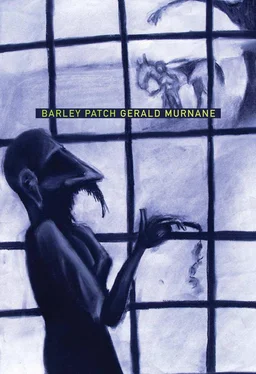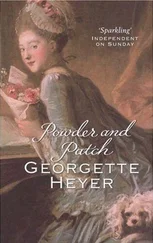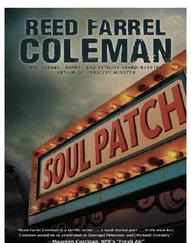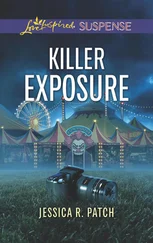Gerald Murnane - Barley Patch
Здесь есть возможность читать онлайн «Gerald Murnane - Barley Patch» весь текст электронной книги совершенно бесплатно (целиком полную версию без сокращений). В некоторых случаях можно слушать аудио, скачать через торрент в формате fb2 и присутствует краткое содержание. Год выпуска: 2011, Издательство: Dalkey Archive Press, Жанр: Современная проза, на английском языке. Описание произведения, (предисловие) а так же отзывы посетителей доступны на портале библиотеки ЛибКат.
- Название:Barley Patch
- Автор:
- Издательство:Dalkey Archive Press
- Жанр:
- Год:2011
- ISBN:нет данных
- Рейтинг книги:5 / 5. Голосов: 1
-
Избранное:Добавить в избранное
- Отзывы:
-
Ваша оценка:
- 100
- 1
- 2
- 3
- 4
- 5
Barley Patch: краткое содержание, описание и аннотация
Предлагаем к чтению аннотацию, описание, краткое содержание или предисловие (зависит от того, что написал сам автор книги «Barley Patch»). Если вы не нашли необходимую информацию о книге — напишите в комментариях, мы постараемся отыскать её.
Barley Patch — читать онлайн бесплатно полную книгу (весь текст) целиком
Ниже представлен текст книги, разбитый по страницам. Система сохранения места последней прочитанной страницы, позволяет с удобством читать онлайн бесплатно книгу «Barley Patch», без необходимости каждый раз заново искать на чём Вы остановились. Поставьте закладку, и сможете в любой момент перейти на страницу, на которой закончили чтение.
Интервал:
Закладка:
Surely I have paused at least once during a lifetime of reading and have admired the passage in front of me as a product of the writer’s excellent imagination.
I can recall clearly my having paused often during my first reading of the book of fiction Wuthering Heights , which reading took place in the autumn of 1956. I can recall equally clearly my having paused often during my first reading of the book of fiction Tess of the D’Urbervilles , which reading took place in the winter of 1959. I doubt that I paused in order to feel gratitude or admiration towards any authorial personage. (The only picture I had seen of Thomas Hardy had reminded me of my father’s father, whom I had met several times when he was an old man with a drooping moustache and whom I always remembered as one of the least likeable of persons. The only picture I had seen of Emily Brontë had reminded me of the youngest of my father’s four unmarried sisters, whose company I could never enjoy — not because she was an unlikeable person but because I felt always obliged to avoid mentioning in her presence anything even remotely connected with sexuality.) I think it more likely that I paused in order to contemplate my own achievements as a reader; in order to feel grateful for my seeming to possess a certain mental adroitness or in order merely to savour my astonishment at the unexpected appearance of certain perspectives in far parts of the place that I call my mind.
I would first have paused during my first reading of Wuthering Heights in order to dwell on the strange-seeming circumstance that I had given to the character of Catherine Earnshaw in my mind the appearance of the young woman, hardly more than a girl, who had become not long before my steady girlfriend, to use an expression from the 1950s.
I should remind the reader that every sentence hereabouts is part of a work of fiction. I should remind him or her also that I have hardly ever during the past thirty years given a name to any character in any work of fiction of mine. Even so, I feel urged to give to the fictional young woman, hardly more than a girl, who was first mentioned in the previous paragraph, the name “Christine.” I feel so urged because although I suspect that the elderly woman who was once my steady girlfriend is not a reader of fiction and may not be aware that her first steady boyfriend became, many years after she had last seen him, a writer of fiction, still I suspect that one at least of the elderly woman’s friends or acquaintances may be a reader of fiction and may, perhaps, read these sentences of fiction hereabouts while the elderly woman is still alive.
I would have later paused in order to dwell on the strange-seeming circumstance that the fictional character Catherine Earnshaw had turned away from the friend of her girlhood, the fictional character Heathcliff, in somewhat the same way that I was expecting Christine to turn away from me soon, as she did in fact turn away. The motives of the fictional character might have been variously interpreted, but Christine’s motives would have been clear to me. She was going to turn away from me because I seemed hardly interested in her own concerns, ambitions, daydreams. I knew that I should have been thus interested. I had read sometimes, in magazines intended for women, passages recommending that young persons should express an interest in one another’s concerns. Even so, I seldom remembered, while I was with Christine, to ask about her concerns. Instead, I spent much of my time with her in explaining how one or another poem or work of fiction that I had read recently had affected me or had influenced me to want to write in future a sort of poetry or a sort of fiction different from the sort that I had previously wanted to write. If the thought had once occurred to me that I was talking too much about my own concerns, then I might have reassured myself with the thought that Christine would surely consider herself amply compensated when she read in the future some or another published piece of poetry or fiction alluding to a personage of her appearance or with her concerns; or else I took it as inevitable that we would separate but hoped my subsequent solitariness might be helpful to me as a writer.
I would have paused during my first reading of Tess of the D’Urbervilles in order to dwell on the strange circumstance that I had seemed to give to the character of Tess Durbeyfield in my mind the appearance of a certain young woman of about my own age who was at that time a classmate of mine in the teacher-training college where I was then studying. I hereby remind the reader of all that I reminded him or her at the beginning of the paragraph preceding the previous paragraph. I now report that I feel urged to give to the fictional young woman who was first mentioned in the sentence before the previous sentence the name “Nancy.” I feel so urged because I suspect that the elderly woman who was once a classmate of mine may have been throughout her life a reader of fiction.
I would later have paused during my reading of Tess of the D’Urbervilles in order to dwell on the strange circumstance that the fictional character Angel Clare had, at a certain point in the narrative, turned away from the character Tess Durbeyfield in somewhat the way that I had turned away several times from Nancy during the months before I began to read Tess of the D’Urbervilles.
I first met Nancy in the late summer of 1959, when she and I became classmates in the training-college for primary-school teachers. When I met her, I had been without a girlfriend for nearly three years. My only previous girlfriend had been Christine, who was mentioned earlier in this piece of fiction, but who had turned away from me. During my three solitary years, so to call them, I followed the policy of approaching only those young women who seemed likely to be readers of books of fiction or of poetry and who might therefore be supposed to take kindly to hearing me talk about the fiction and the poetry that I intended to write. During my three solitary years I approached, in fact, no young women.
Books of fiction or of poetry were seldom discussed during classes at the training college where I met Nancy. Even so, I formed the impression during one of the first classes in the subject called English in 1959 that Nancy might sometimes have read such books in private and might have been influenced by them. If I had followed the policy mentioned in the previous paragraph, I should have approached Nancy early in 1959. For nearly six months, however, I found excuses for not approaching her. Before coming to the training college, Nancy had spent a year at university, where one of her chosen subjects had been English. I had avoided going to university partly from a fear of being compelled there to study books of poetry or of fiction that might distract me from writing the sort of poetry and fiction that I hoped to write and partly because I had once seen in a Melbourne newspaper a photograph of a lawn at the university during lunch-hour on a warm day in summer and had noted among the crowd of students sprawled or seated on the lawn many groups in which males and females were intermingled and some of the females wore dresses with low necklines. I had not wanted to be one of such a crowd. Moreover, Nancy was a champion swimmer and served as a life-saver during summer at the beach near her home.
Six months after I first met Nancy, I began to read Tess of the D’Urbervilles , although it was not part of the required reading for the teacher-training course. Long before I had finished the book, I understood that it would be out of character for me if I were to approach Nancy during the foreseeable future.
In answer to the question posed at the head of this section: I admit that I have sometimes paused while reading about one or another fictional personage. I have sometimes paused as though I had met up at last with an imagined character. I have sometimes paused but then I have gone on reading; the seeming character has become one more of the many personages in the background of my mind; Catherine Earnshaw is indistinguishable from a young woman, hardly more than a girl, whose name in my mind is Christine; Angel Clare and I are of one accord.
Читать дальшеИнтервал:
Закладка:
Похожие книги на «Barley Patch»
Представляем Вашему вниманию похожие книги на «Barley Patch» списком для выбора. Мы отобрали схожую по названию и смыслу литературу в надежде предоставить читателям больше вариантов отыскать новые, интересные, ещё непрочитанные произведения.
Обсуждение, отзывы о книге «Barley Patch» и просто собственные мнения читателей. Оставьте ваши комментарии, напишите, что Вы думаете о произведении, его смысле или главных героях. Укажите что конкретно понравилось, а что нет, и почему Вы так считаете.












